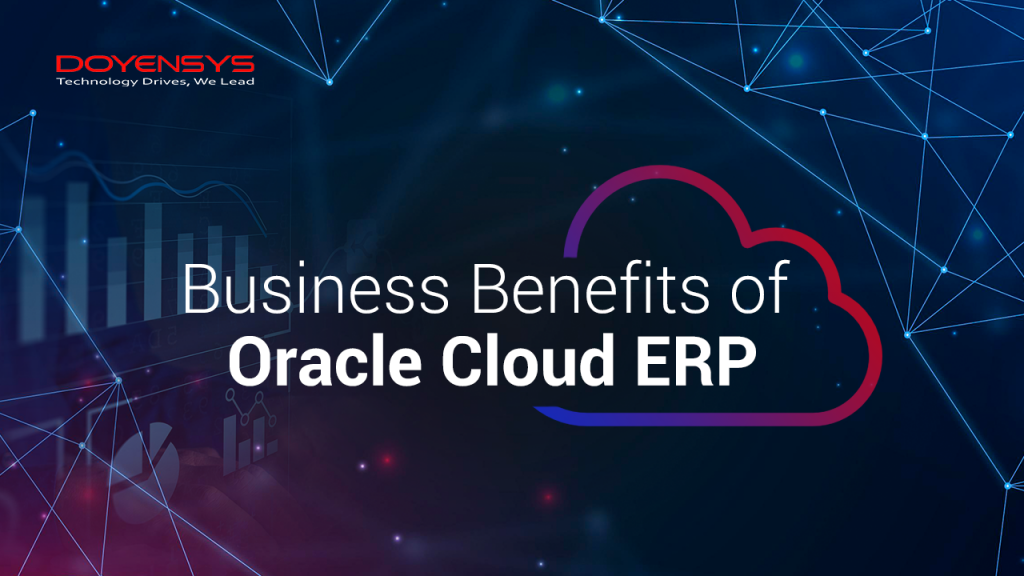The recent digital era changes much faster than it has ever been. Adopting new technology, embracing new business models, and using the cloud as a platform for constant innovation are all necessary to remain competitive in this new business environment. Adopting a “business as usual” attitude toward technology might damage a company’s long-term prospects.

ERP modernization has traditionally meant huge, expensive, and time-consuming implementations requiring significant hardware or infrastructure investments for many IT departments. Businesses may reduce support expenses and receive a quick return on their investment by moving ERP to the cloud.
ERP applications in the cloud can quickly value the products by improving productivity, increasing scalability & cost-effectiveness. Cloud-based ERP apps are now end-to-end solutions with the same features and capabilities as their on-premises counterparts. Cloud solutions can integrate various other technologies like mobility, analytics, collaboration & social media.
However, why should we choose Oracle ERP Cloud for our company? Are you an Oracle platform customer debating whether a SaaS solution like Oracle ERP Cloud is ideal for your company – or if you should stick with Oracle E-Business Suite? Let’s have a look at the advantages.
A detailed overview on Oracle ERP Cloud:
The Oracle ERP Cloud is created on the Oracle Cloud architecture, which provides key qualities that every organization would require in a cloud platform, such as high performance and scalability, increased reliability, and improved security.
The IDC White Paper comprised a study of over 1,600 firms in North America, Europe, and Asia that use Oracle ERP on-premises for all or part of their operations (Oracle E-Business Suite, Peoplesoft, or JD Edwards). 15 per cent of these clients have switched to Oracle Cloud ERP, and nearly a quarter are in the process of doing so, indicating that the early adopter phase is finished.
When we look at the full scope of ERP, which includes everything from customer relationship management (CRM) and human capital management (HCM) to finance and supply chain management, we see that organizations typically begin to embrace cloud-based services to add value to specific business processes like talent recruitment and management or sales automation. So, what are the benefits of using Oracle ERP on the cloud for businesses?
Business benefits of Oracle Cloud ERP
Organizations that adopt digital transformation get several IT and business benefits, ranging from speedier financial closing times to faster merger integrations.
Faster time to value
Unlike traditional on-premise solutions, cloud apps allow businesses to implement new features quickly and at a reduced cost. IT is concerned with integration and security with cloud applications, and the cloud services vendor can help with these duties.
On-premise systems necessitate substantially more IT effort, and much of that effort is concentrated on maintaining the existing, sometimes complicated, IT environment’s consistency. This complexity might make it difficult to roll out new features, resulting in increased IT costs and a lengthier implementation time and effort for the company.
Scalability with growth
Oracle ERP cloud applications empower business leaders to move when scalability is required. They can usually evaluate results after a pilot period and decide how and when the capability should be rolled out in the business.
Many firms, particularly those whose ERP system is focused on CRM, HCM, and financial management, have evolved to the point where ERP cloud solutions are a good strategic alternative.
Automating mundane processes
Automation improves considerably with built-in machine learning and an AI-powered digital assistant. The most significant benefit of Oracle Cloud ERP is reducing the amount of human labor required to process massive amounts of data.
Even key financial and procurement transactional procedures can now be supported in a suitable way for most enterprises. As illustrated in the following scenarios based on real-life customer engagements, this might result in enhanced value and new business prospects.
One cloud platform
Oracle Cloud ERP simplification ensures consistency in the user experience, processes, planning and analytics, data, and cloud service delivery. Data may be readily exchanged across apps because of the common data model and pre-built APIs. Customers can accomplish company-wide, linked planning across multiple business areas due to this.
Increased innovation
The functionality of cloud apps is distributed in a standardized manner. It means that everyone uses the same program. Because customizations are not permitted, innovations can be implemented much more quickly, and the user group’s experience can be shared.
One of the most commonly discussed benefits across all company sizes is Oracle ERP’s ability to integrate with other software, particularly other Oracle technologies. The customers get a better solution every 90 days thanks to Oracle Cloud ERP’s automatic quarterly upgrades: more accurate financial forecasting, heightened security, and automation.
The distinction between on-premises and cloud ERP is unmistakable. Oracle Cloud ERP is driving the migration from on-premises ERP to the cloud, with over 8,500 clients worldwide and growing.
Final Words:
Doyensys, an Offshore Oracle Service Provider, offers a support solution for ERP applications that successfully ensure ERP consolidation. Our team of certified expert consultants monitors Oracle ERP implementation success against benchmarks, user experience, system performance, user happiness, and return on investment.
Visit https://doyensys.com/ today to speak with one of our technical specialists.

